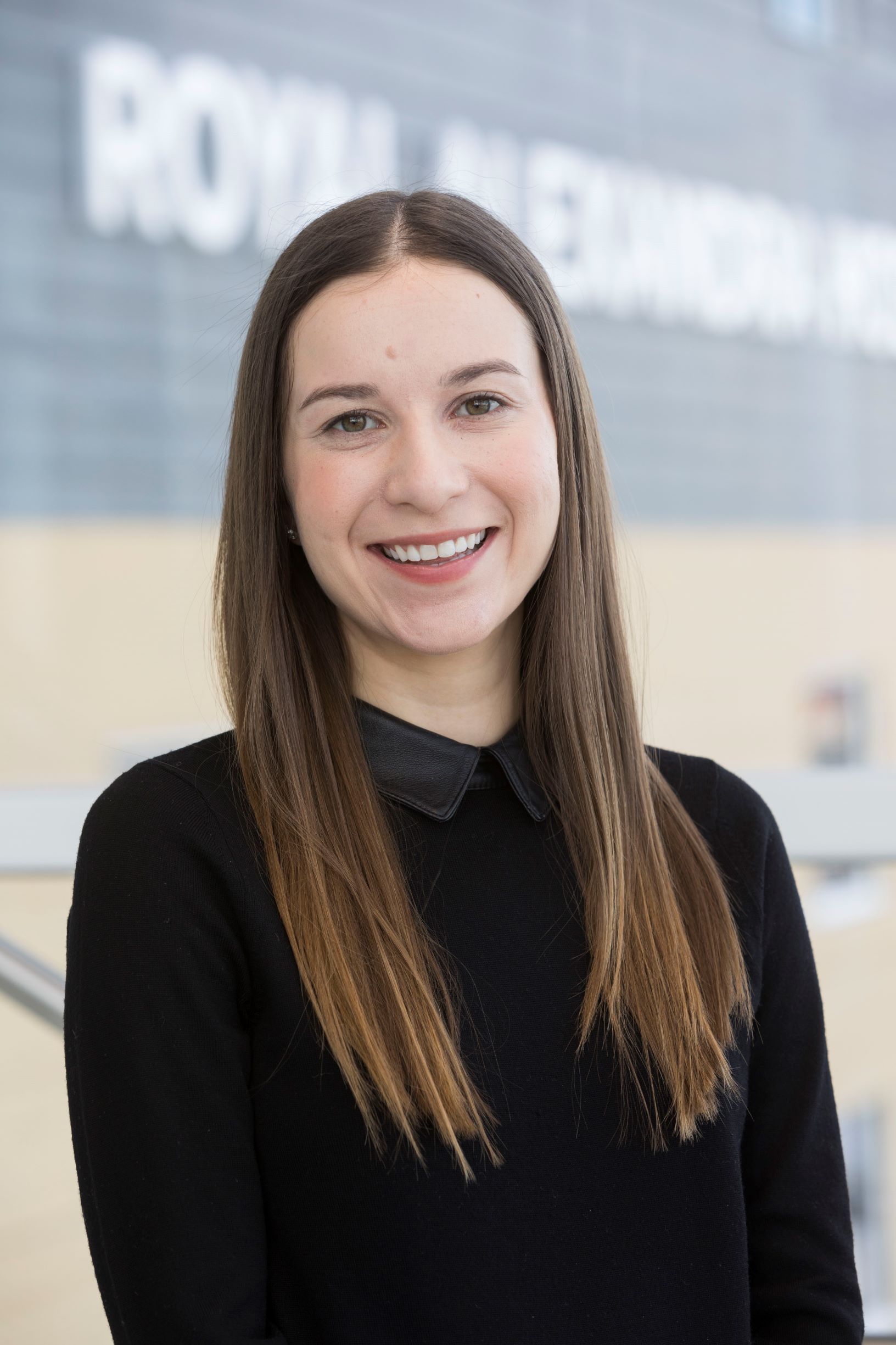Have you met … Essi Salokangas?
26 September 2024
 Essi Salokangas is a proud two-time alumna of the University of Alberta, and she combines the skills and theories she learned in both degrees — a bachelor of science in pharmacy (2016) and a master in public health (health promotion) completed just this year — in her work and teaching. With professional pharmacy experience in addiction medicine and mental health, she is very interested in harm reduction and trauma-informed care and is not afraid to challenge the expectations of a typical pharmacist role. She believes pharmacists can be both care providers and advocates and she can’t wait to share her passions with her new students.
Essi Salokangas is a proud two-time alumna of the University of Alberta, and she combines the skills and theories she learned in both degrees — a bachelor of science in pharmacy (2016) and a master in public health (health promotion) completed just this year — in her work and teaching. With professional pharmacy experience in addiction medicine and mental health, she is very interested in harm reduction and trauma-informed care and is not afraid to challenge the expectations of a typical pharmacist role. She believes pharmacists can be both care providers and advocates and she can’t wait to share her passions with her new students.
We spoke to Salokangas about her work as a clinical pharmacist, her interest in teaching and her strong passion for socially accountable care.
What can you tell us about your relevant non-academic work?
In 2016, I co-founded the Adherence and Community Engagement (ACE) team, a pharmacist-led interdisciplinary outreach team caring for people living with HIV with barriers to care. In 2018, I became the first integrated clinical pharmacist on the Addiction Recovery and Community Health (ARCH) team, an inpatient addiction medicine consult service at the Royal Alexandra Hospital. Most recently, I worked as a program consultant with Alberta Health Services’ provincial addiction and mental health portfolio, advocating for innovative solutions to address complex challenges within mental health and substance use disorder initiatives.
Will this be your first time teaching in a classroom?
I’ve had the pleasure of guest lecturing for the past several years specifically as it relates to the management of various substance use disorders and providing care to people who use drugs.
What draws you to teaching at the U of A?
I am drawn to teaching for the way it links theoretical knowledge with practical application. My teaching approach emphasizes critical thinking and social accountability. I hope to inspire students to prioritize building relationships, reducing barriers to care, and patient advocacy. This requires students to practise with empathy, curiosity and introspection. I believe this will position students to lead with excellence not only in pharmacy but in health care more broadly.
Returning to the U of A as a teacher is an opportunity to give back to the community that supported my growth. I look forward to engaging with students who share a passion for challenging the status quo in pursuit of equity and inclusivity. I hope to support a new generation of pharmacists who are not only skilled providers but also dedicated advocates for change.
Is there a particular area of interest you are most looking forward to sharing?
I am a strong proponent of harm reduction, trauma-informed care, anti-oppressive practice, as well as the comprehensive care of a person as it relates to addressing the social determinants of health. Furthermore, I am passionate about reorienting health services to better serve patients and achieve health equity.
How would you describe your approach to teaching?
I encourage students to think from both individual and population-health perspectives, specifically considering the experiences of equity-deserving populations as well as the role of the social determinants of health. When we acknowledge the relationship between health behaviours and social context, pharmacists can, in tangible ways, explore how social determinants impact their patients’ health and ultimately, better support patients to meet their health goals. These perspectives will empower pharmacy students to be impactful practitioners.